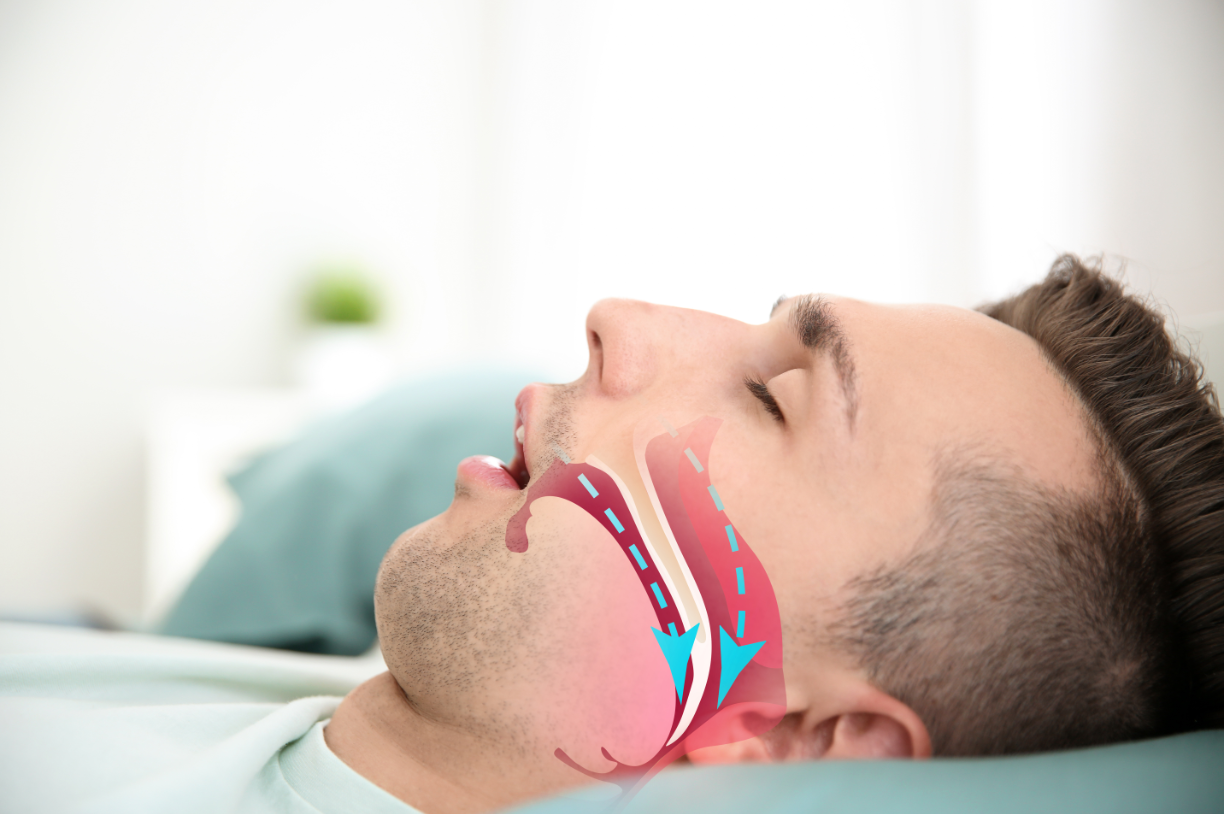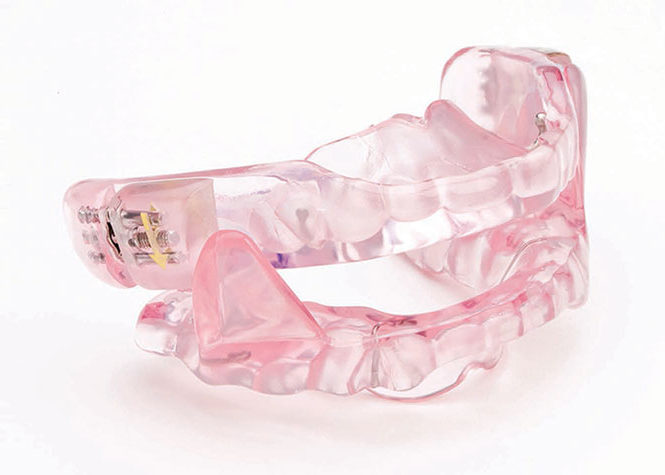
Snoring
Obstructive Sleep Apnea
What is sleep apnea?
This is a much more serious condition than just snoring, although snoring can be the first obvious sign of someone having trouble breathing while asleep. It has been linked to excessive tiredness, depression and reduced resistance to infection. When left untreated OSA can increase the risk of heart attack, hypertension, stroke, high blood pressure, diabetes, catching colds and even death.
What causes OSA?
During sleep muscles relax, including those that control the tongue and throat. The soft tissue (or flesh) at the back of your throat can sag, narrowing the airway. Incoming air then makes the tissue at the rear roof of the mouth (the soft palate), the flap of skin hanging from the palate (uvula) and the throat vibrate—a sound we know as snoring. While most people who suffer from sleep apnea do snore, not all people who snore suffer from sleep apnea. If you or a loved one snores loudly at night, please have a sleep study done to rule out this potentially fatal condition. During the sleep study, a physician will monitor and measure your pulse rate, oxygen saturation and desaturation, body position, presence or absence of snoring, how much you slept throughout the night, how much time you spent in each phase of sleep, leg movements and blood pressure. The sleep study physician will interpret your results and provide you with a diagnosis.
What are some of my treatment options?
If you have OSA or display symptoms of OSA such as loud snoring, excessive daytime sleepiness, fatigue and witnessed apneas, it is essential that you seek the right treatment option. A dental appliance can work very well to alleviate this and allow you to breathe more easily throughout the night. Our office offers different types of custom appliances:
The TAP® (Thornton Adjustable Positioner) :
A mandibular repositioning appliance that has two separate components for the top and the bottom jaws that are inter-connected to allow the lower jaw to be held in a forward position so that it does not fall open during the night and cause the airway to collapse.
A mandibular advancement splint, comprised of upper and lower dental plates with a unique patented fin coupling component designed to hold your lower jaw forward while you sleep to allow easier breathing. Its key features include the ability to open and close your mouth normally as SomnoDent does not lock or fix your jaws together, it can be fine-tuned to help sufferers of nighttime tooth clenching or grinding, and can also be made for patients who are completely or totally edentulous (partially or completely without teeth).


Get on the Road to a Great Smile!
Call: 203-248-0072
Email: contact@hamdendentistry.com
Visit: 2559 Dixwell Avenue, Hamden, CT

Office Hours
Monday through Thursday
8:30 AM to 5:30 PM
Friday
8:30 AM to 12:30 PM


